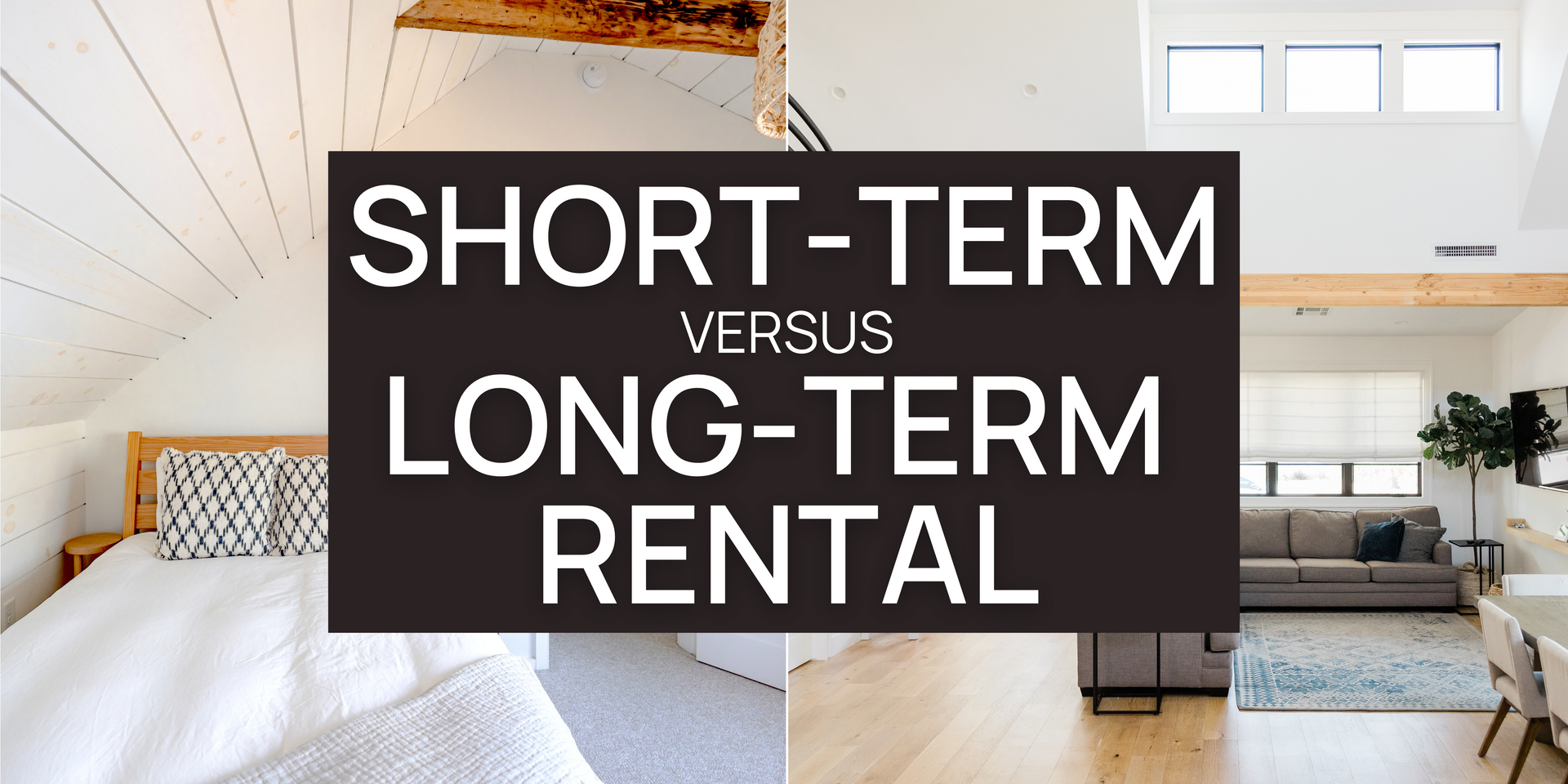Short-Term vs. Long-Term Rental: Finding Your Perfect Housing Solution
Deciphering the Rental Puzzle: Which Path Suits Your Journey Best?

In the myriad of housing options, choosing between short-term and long-term rentals can be a pivotal decision, greatly impacting your lifestyle, budget, and overall convenience. Whether you're a frequent traveler, a student planning an extended stay, or someone exploring a new city for work, this blog post will break down the pros and cons of each housing arrangement to help you make an informed choice.
Short-Term Rentals:
PROS:
Flexibility: Short-term rentals offer unparalleled flexibility. They are ideal for travelers who want the freedom to move around and explore different destinations without being tied to a lease.
Variety: With platforms like Airbnb and Vrbo, short-term renters have access to a diverse range of accommodations, from cozy apartments and trendy lofts to luxurious villas and unique experiences like treehouses and houseboats.
All-Inclusive Options: Many short-term rentals come fully furnished and equipped with amenities like kitchens and laundry facilities, offering a convenient and home-like experience.
Location: Short-term rentals are often available in prime locations, providing easy access to tourist attractions, city centers, and cultural hotspots.
CONS:
Cost: Short-term rentals can be more expensive than their long-term counterparts, especially when factoring in nightly rates, cleaning fees, and service charges.
Uncertainty: The quality and consistency of short-term rentals can vary. What you see in listing photos may not always match reality, leading to potential disappointments.
Availability: In peak travel seasons or popular destinations, finding available short-term rentals can be challenging. Booking well in advance is often necessary.
Long-Term Rentals:
PROS:
Stability: Long-term rentals offer stability and predictability. You can establish a routine, build relationships with neighbors, and become part of a community.
Cost-Effective: Over time, long-term rentals tend to be more cost-effective than nightly stays. Monthly rates are often lower, and utility costs may be more predictable.
Local Living: Long-term rentals allow you to immerse yourself in local life, shop at neighborhood markets, and experience the destination like a resident.
Privacy and Space: Long-term rentals typically provide more space and privacy, making them suitable for families, remote workers, or those who value personal space.
CONS:
Commitment: Committing to a long-term rental means you're tied to a location for a set period, which may not suit those seeking constant change or flexibility.
Initial Costs: Upfront expenses for security deposits, utilities, and furnishings can be substantial when renting long-term.
In conclusion, the choice between short-term and long-term rentals hinges on your individual circumstances and objectives. Short-term rentals offer flexibility and variety, perfect for travelers and adventurers, while long-term rentals provide stability, cost savings, and a deeper connection to local communities. Consider your budget, lifestyle, and the duration of your stay to determine the housing solution that best aligns with your needs. Ultimately, the perfect rental will be the one that enhances your overall living experience, whether you're exploring the world or settling into a new chapter of life.







